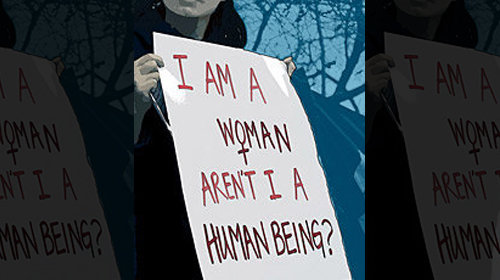“It was all in their hands, and they just let her go.” -- Remembering Savita Halappanavar


On October 21, Savita Halappanavar, a 31-year-old dentist who was 17 weeks pregnant, sought treatment for severe back pain at a local hospital in Galway, Ireland. When doctors told her that she was miscarrying, Ms. Halappanavar asked for an abortion. Her repeated requests were denied. On at least one occasion, , a doctor told the couple that she couldn’t get the medical care she needed to save her life because “This is a Catholic country.” So, an abortion would not be performed so long as a fetal heartbeat could be detected even though Ms. Halappanavar that she, a Hindu, was neither Irish nor Catholic.
Three days later, when the fetal heartbeat stopped, doctors removed the fetal remains. But it was too late for Ms. Halappanavar—on October 28, she died from septicemia, a blood infection that resulted from the prolonged exposure of her cervix. Instead of allowing her immediate surgery, Ms. Halappanavar lingered in the hospital, in pain, until her untimely, tragic, and avoidable death.
Ms. Halappanavar’s death has reignited over Ireland’s abortion laws. The Irish Supreme Court ruled in 1992 that abortions are illegal unless there is a “real and substantive threat” to a woman’s life. No legislation reflects this ruling and the Irish government has repeatedly failed to act while women’s lives hung in limbo.
As we grieve with the Halappanavar family and support the who are demanding answers and reforms, we must also remember that similar outrageous events can and do occur in the United States.
Sadly, since Roe v. Wade, politicians have steadily chipped away at a woman’s right to make their own medical decisions. Despite a federal law requiring that hospitals provide appropriate care to a woman in an emergency, provide immunities to doctors and hospitals that refuse to perform an abortion that a woman needs to protect her health. The consequences that women suffer are real and horrific.
For instance, in 2009 in Arizona, a young woman who was 11 weeks pregnant and dying from pulmonary hypertension sought treatment at a local Catholic hospital. The woman decided to terminate the pregnancy to save her life, and an abortion was performed. Instead of commending the hospital and its staff for helping save someone’s life, the Roman Catholic Diocese of Phoenix determined that the act violated Catholic teachings and .
Another doctor practicing at a Catholic hospital in the northeast how he saved a woman’s life, in defiance of the hospital ethics committee’s refusal to approve an abortion when a fetal heartbeat could be detected:
I’ll never forget this; it was awful—I had one of my partners accept this patient at 19 weeks. The pregnancy was in the vagina. It was over. . . . I’m on call when she gets septic, and she’s septic to the point that I’m pushing pressors on labor and delivery trying to keep her blood pressure up, and I have her on a cooling blanket because she’s106 degrees. And I needed to get everything out. And so I put the ultrasound machine on and there was still a heartbeat, and [the ethics committee] wouldn’t let me because there was still a heartbeat. This woman is dying before our eyes. . . .Her bleeding was so bad that the sclera, the white of her eyes, were red, filled with blood.
After the delay, the patient was in the Intensive Care Unit for 10 days, and developed pulmonary disease, resulting in lifetime oxygen dependency.
In the United States, we are all entitled to our religious beliefs. However, those beliefs cannot and must not be used to harm others. When we enter a hospital, we should not have to wonder whether we will be able to receive necessary care. Savita Halappanavar deserved timely, safe, and medically sound treatment. American women deserve no less.
Learn more about abortion legislation: Sign up for breaking news alerts, , and .

